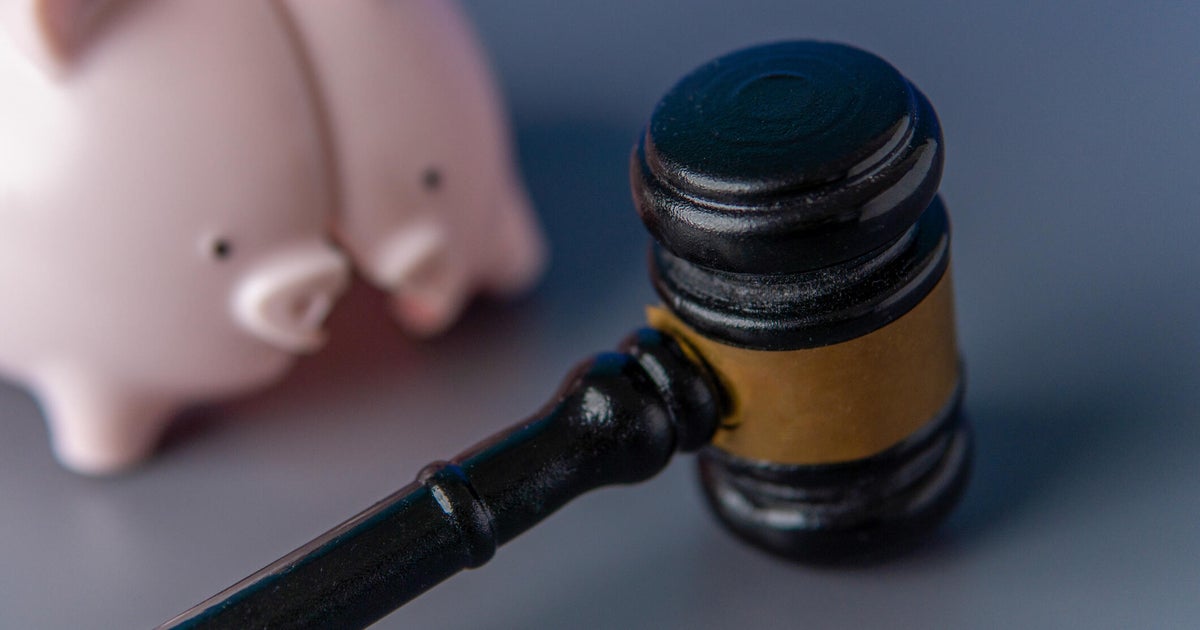Don't pursue credit card debt forgiveness before considering these 4 things, experts say
Falling into credit card debt can be easy. After all, you can swipe to pay even if you don't have funds in your bank account to repay the balance. And depending on your financial situation, you may have no choice but to turn to credit cards to cover an emergency, such as an unexpected car repair bill.
That ease of use, coupled with the economic factors that are impacting many people's budgets, is likely playing a part in why one in five credit card accounts are maxed out. And, it may also be contributing to some of the other credit card issues that are looming, like credit card delinquencies hitting a 12-year high in the first quarter of this year.
On a positive note, if you're dealing with unmanageable credit card bills, debt relief options like credit card debt settlement, also known as credit card debt forgiveness, can be a solution. However, if you're going to take this route, there are some things to consider first, experts say.
Need help with your credit card debt? Start comparing your options here.
Don't pursue credit card debt forgiveness before considering these 4 things
Experts say you should consider these four things before you enroll in a credit card forgiveness program.
Know your budget
Before you settle your credit card debt, experts recommend reviewing your budget to see how you got into debt in the first place.
"Our busy schedules and hectic lifestyle can lead to more card swipes than we care to admit," says Edna Forero, a ChFc and EA based in Jupiter, Florida.
Forero also recommends reviewing your credit card statements to evaluate your purchases and find areas in which you can rein in extra spending. If you do this, you might find extra cash to make additional payments — helping you avoid this or other types of debt relief.
Learn more about how the right debt relief strategy could help you tackle your high-rate debt now.
Know the credit impacts
Another factor to consider is how credit card forgiveness can affect your credit score.
Credit card debt settlement can cause a significant drop in your credit score, says Melody Brady, certified financial planner, founder and principal financial planner at Beechmont Financial.
And credit card debt forgiveness can affect your credit for the longer term, too. The late payments you make during the debt settlement process will generally remain on your credit reports for seven years — and the settled accounts could be reflected on your credit report for that long, too.
So, if you plan on purchasing a home or vehicle soon, you may want to consider alternative ways to pay off what you owe on your credit cards.
Know the tax implications
You'll also want to consider the possible tax implications of credit card forgiveness.
"For example, if you have $10,000 of debt forgiven, this amount is added to your taxable income, which can lead to a higher tax bill," says Brady.
As a result, Brady recommends working with a tax professional to understand how much you could owe after having some or all of your credit card debt forgiven. That way, Brady says, you can create a plan to handle this liability.
Know the alternatives
Since settling your credit card debt can harm your credit and is often time-consuming, experts recommend considering other options for paying off credit card debt first.
For example, Leslie H. Tayne, Esq, founder and head attorney at Tayne Law Group, P.C., a debt relief firm based in New York, recommends that cardholders who can afford to repay their credit cards consider using the debt snowball or avalanche strategies as an alternative.
The debt snowball method involves making extra payments on your lowest credit card debt first while paying the minimum balance on your other cards. Once the card with the lowest balance is paid off, you move on to the next-lowest balance until all cards are paid off. This credit card repayment strategy might be best if seeing small wins encourages you to continue paying off your credit cards.
The debt avalanche repayment method could be a better choice if you want to save the most on interest. With this option, you focus on paying off the credit card with the highest interest rate first, while making minimum payments on your other cards. You then move on to the card with the next-highest interest rate and continue that process until all cards are repaid.
Another option, though it may be challenging depending on your situation, is to boost your income and put the extra money toward lowering your credit card debt. Some ways to do this include asking for extra hours at your current job or a promotion or picking up a side hustle, says Tayne.
If you have stellar credit, Tayne says it could also make sense to consider consolidating your credit card debt. As an example, you could take advantage of an offer on a 0% APR balance transfer credit card so 100% of your payments go toward the original balance. That said, keep in mind that once the promotion ends, any remaining balance will accrue interest at the card's standard rate.
You could also consolidate your credit card debt with a personal loan. If you qualify for a lower rate on that or another type of debt consolidation loan, you could save thousands of dollars in interest over the life of the new loan.
The bottom line
Credit card debt settlement can reduce the overall amount you owe if used correctly, according to Forero. While you can do this on your own, working with a debt relief company might be beneficial if you need help. After all, communicating with credit card companies and possible ongoing collection calls can be stressful, Forero says. But before you pursue this option, consider alternative routes that don't harm your credit like consolidating your credit card debt.
Regardless of which method you choose, though, you may need to change your spending habits if that's what caused your credit card debt to become unmanageable. "It's about changing the habits that led to the debt in the first place," says Brady. If you don't adjust any bad spending behavior, you run the risk of falling back into the same financial traps.




